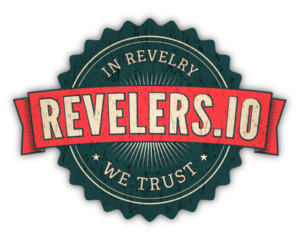Facebook Isn’t the Only one Making Billions off Your ‘Private’ Info.
Data Brokers Are in the Business of Selling Your Online Information (Marketplace)
Whether it’s Facebook or Google or smart speakers that may be overhearing every word you say, there are lots of companies that pose a risk to your privacy. And there are also hundreds of companies you haven’t heard of making billions of dollars buying and selling detailed dossiers — about everybody. Host Molly Wood talked about the data broker business with Michelle Richardson, director of the Data and Privacy Project at the Center for Democracy and Technology. The following is an edited transcript of their conversation.
Wood: There’s this idea that if we regulate Facebook and Google, but don’t regulate data brokers, then we’ve barely scratched the surface. Is that a fair characterization?
Richardson: That’s right. A lot of the media now focuses on Facebook or Google because they’re household names, but the system is really so complex. The data brokers are operating at a level below that, a level consumers don’t see or interact with.
Wood: We’ve built a model where everyone takes everything, just in case. It seems like it would be a large philosophical, legal and financial shift to say, “no, companies, you’ve got to work with the minimum viable amount.” But, I wonder, how hard is this?
Richardson: It’s unprecedented in the U.S. I don’t want to underplay how difficult it is, because this is going to require a change in mindset, legal structures and consequences for people. Not everything we do online has to be done in exchange for free services, sharing data or helping someone build their next product.
Wood: I was talking to a climatologist recently about climate change who said, “I used to tell people to take these individual actions. At this point, I’m telling them, that’s not going to help. You need to come up with something that your whole city can do.” It feels like we’re there with our own data footprints, too. Even if you and I tried to turn off the hose, don’t get an Amazon Echo or don’t use these various products, deprive ourselves of existing in the modern world, that it doesn’t even matter.
Richardson: That’s right. Information is collected about you passively, everywhere you go. It’s everything from these stories about how you can now walk into a retail store and they are taking pictures of your face to see what you’re looking at, are you smiling, what you buy. All that stuff is able to be reassociated to a real live human being and that’s just because you walked in to buy a soda out of a CVS. Even if you want to be a lean data person and choose to opt out of some of the big names that we know to be bad actors, there’s just no way out of this now, not in 2019. We just need to accept that and expect better from our private sector and how they handle our data.
Wood: I could imagine companies saying, “We need this information to conduct our business,” or that consumers really like those targeted ads. Are there downsides of data brokers not having this level of information?
Richardson: There are a lot of different advertising activities out there. You do not have to get this granular to serve people ads that are relevant to their lives. The idea that it’s an on or off switch, we either have advertising or not, is probably a little too simplistic. You could, for example, say that because someone is visiting a sports website, they might want to see ads for tickets for the local football team or something relevant to that website. That would be one way to do it. You don’t actually have to track people for many years, across devices and services and behaviors to come up with a way to understand what they might want to see more of. That middle road would be a way to keep advertising and advertising models alive without the creep factor and the intrusive information tracking.












